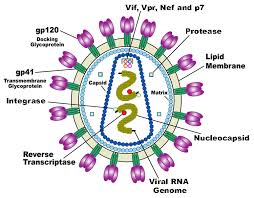Abstract
To investigate whether human immunodeficiency virus (HIV)-1 and HIV-1 antigens modulate surface and cytoplasmic CD8 or CD3, as well as CD4, we used cell permeabilization reagents, surface/cytoplasmic fluorescent staining, multiparameter flow cytometric techniques and an in vitro culture system in which relatively few lymphocytes are actively infected with HIV. Human peripheral blood lymphocytes were: not stimulated, not stimulated but HIV-inoculated, phytohaemagglutinin (PHA)-stimulated, PHA/HIV-inoculated (PHA/HIV), or placed into media with soluble gp120, Rev or Nef. HIV inoculation and Nef had striking modulatory effects on CD8. The cytoplasmic CD8 median fluorescent intensity (MFI) of positive lymphocytes was lower for cells in unstimulated/HIV-infected cultures than unstimulated cultures (44 versus 62% of ex vivo value, P = 0.032) and lower for cells in PHA/HIV cultures than in PHA cultures (56 versus 100% of ex vivo, P = 0.041). The surface CD8 MFI values for Nef were significantly lower than the ex vivo value (75% of ex vivo, P = 0.006). At days 2-7 of culture, Rev was associated with slight reductions in surface CD4 MFI (58% of ex vivo versus 78% of ex vivo for unstimulated cultures, P = 0.047) and greater effects on cytoplasmic CD3 MFI (131 versus 179% of ex vivo for unstimulated cultures, P = 0.035), and surface CD8 MFI (70% of ex vivo, P = 0.006 versus ex vivo value). The globality of Rev’s effects suggests these are related to a shared processing pathway, i.e. not due to direct interaction with CD3, CD4 and CD8; the effects of HIV inoculation and Nef on CD8 expression appear to be more CD8 specific. Because CD8 is essential for cytotoxic T-cell function, its down-modulation could inhibit this activity, including anti-HIV cytotoxicity. Given the critical roles of CD3 and CD8 in T-lymphocyte signal transduction and antigen responsiveness, the effects of HIV, Rev and Nef on these molecules have clinically significant implications concerning the pathogenesis and treatment of HIV.
Jason J, Inge KL
Scand. J. Immunol. 2001 Mar;53(3):259-67
PMID: 11251883
Jason_et_al-2001-Scandinavian_Journal_of_Immunology-modulation-HIV